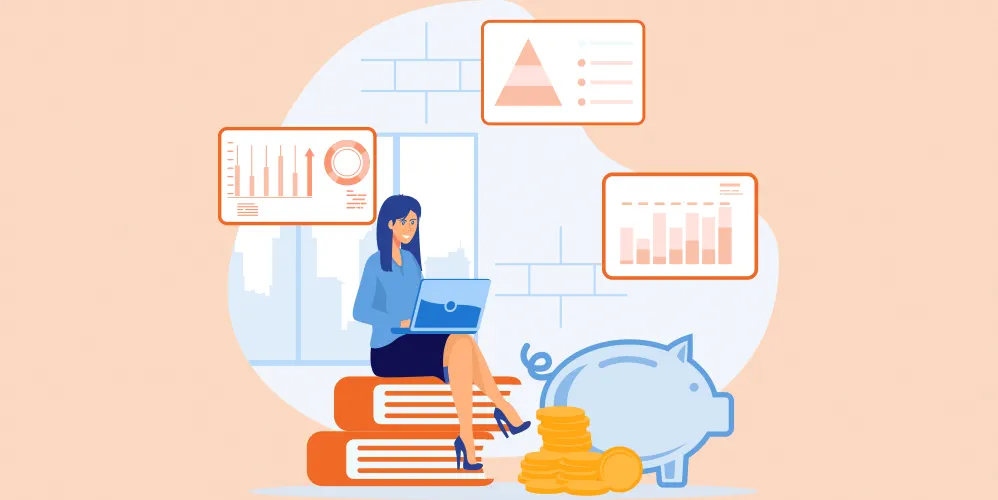
Dishonoured Cheques: How to Avoid Them and Handle the Consequences
17 मार्च 2025

Table of Content
Introduction
Cheques are a trusted and widely used payment method, but they can return unpaid. This leads to what is known as a dishonoured cheque, which can cause financial inconvenience and legal consequences for both the issuer and the recipient. This guide explores the dishonoured cheque meaning, its causes, implications, and steps to handle such situations effectively.
What is a Dishonoured Cheque?
A dishonoured cheque is a cheque that a bank refuses to clear or process for payment. When a cheque is dishonoured, the bank returns it to the payee along with a memo explaining the reason.
Dishonoured cheques often result from insufficient funds, incorrect details, or other issues, potentially leading to reputational and legal challenges to the issuer.
Reasons for a Dishonoured Cheque
Cheques may be dishonoured due to various factors, including:
1. Insufficient Funds :
- The account does not have enough money/funds to cover the cheque amount.
2. Incorrect or Incomplete Details :
- Errors in the date, payee’s name, or amount can lead to rejection.
3. Mismatched Signature :
- The signature on the cheque does not match with the bank’s records.
4. Stale Cheque :
- Presented after the validity period (usually 3 months from the date of issue at present.)
5. Post-Dated Cheque :
- Presented before the mentioned date on cheque.
Read About: What is Post Dated Cheque & How to Write it?
6. Stop Payment Instruction :
- The issuer has instructed his/her the bank to stop payment.
7. Account Closure :
- Cheques drawn from closed accounts are automatically dishonoured.
Implications of a Dishonoured Cheque
1. For the Issuer :
- Reputational Damage: Losing trust with the payee.
- Bank Charges: Penalties for insufficient funds or incorrect details as cheque return charges.
- Legal Consequences: Potential lawsuits under the Negotiable Instruments Act, 1881.
2. For
- Delayed Payments: Financial inconvenience due to non-clearance.
- Loss of Trust: Strained relationships with the issuer.
- Legal Hassle: Additional time and cost for legal recourse.
How to Avoid a Dishonoured Cheque
1. Maintain Sufficient Funds :
Ensure your account balance is adequate before issuing a cheque.
2. Verify Details :
Double-check the date, amount, and payee information before signing.
3. Track Validity :
Present cheques within their validity period to avoid expiry.
4. Avoid Post-Dated Cheques :
Issue them only when absolutely necessary and inform the payee.
5. Communicate with the Payee :
Notify them promptly if you anticipate any issues.
Steps to Take if You Receive a Dishonoured Cheque
1. Contact the Issuer :
Inform the issuer about the dishonour and request immediate resolution.
2. Re-Present the Cheque :
If the issue was minor (e.g., insufficient funds), try depositing the cheque again.
3. Send a Demand Notice :
A formal/legal notice may be issued with due resolution as per provisions available in Negotiable Instrument Act.
Legal Consequences of Issuing or Depositing a Dishonoured Cheque
1. For the Issuer :
- Penalties which may include a fine or imprisonment or both
- Repeated offences can lead to stricter legal action.
2. For the Payee :
The payee has the right to recover the cheque amount, along with legal costs and interest.
3. Timelines for Legal Action :
A demand notice must be issued within 30 days of receiving the dishonoured cheque memo, as per provisions.
Also Read: Understanding Cheque Bounce Charges and How to Avoid Them
Conclusion
Understanding what a dishonoured cheque means, and its implications is essential for both issuers and recipients. Proactively managing your finances, double-checking cheque details, and maintaining open communication can prevent the inconvenience and legal consequences of cheque dishonour.
For those handling cheques, awareness and responsibility are keys to ensuring smooth and trustworthy financial transactions.
Popular Articles
Tag Clouds
Related Articles








What Is Joint Account? - Meaning, Benefits, Application Process & How its Work


-
डिस्क्लेमर
इस लेख/इन्फोग्राफिक/चित्र/वीडियो की सामग्री का उद्देश्य केवल सूचना से है और जरूरी नहीं कि यह बैंक ऑफ बड़ौदा के विचारों को प्रतिबिंबित करे। सामग्री प्रकृति में सामान्य हैं और यह केवल सूचना मात्र है। यह आपकी विशेष परिस्थितियों में विशिष्ट सलाह का विकल्प नहीं होगा । बैंक ऑफ बड़ौदा और/या इसके सहयोगी और इसकी सहायक कंपनियां सटीकता के संबंध में कोई प्रतिनिधित्व नहीं करती हैं; यहां निहित या अन्यथा प्रदान की गई किसी भी जानकारी की पूर्णता या विश्वसनीयता और इसके द्वारा उसी के संबंध में किसी भी दायित्व को अस्वीकार करें। जानकारी अद्यतन, पूर्णता, संशोधन, सत्यापन और संशोधन के अधीन है और यह भौतिक रूप से बदल सकती है। इसकी सूचना किसी भी क्षेत्राधिकार में किसी भी व्यक्ति द्वारा वितरण या उपयोग के लिए अभिप्रेत नहीं है, जहां ऐसा वितरण या उपयोग कानून या विनियमन के विपरीत होगा या बैंक ऑफ बड़ौदा या उसके सहयोगियों को किसी भी लाइसेंसिंग या पंजीकरण आवश्यकताओं के अधीन करेगा । उल्लिखित सामग्री और सूचना के आधार पर किसी भी वित्तीय निर्णय लेने के लिए पाठक द्वारा किए गए किसी भी प्रत्यक्ष/अप्रत्यक्ष नुकसान या देयता के लिए बैंक ऑफ बड़ौदा जिम्मेदार नहीं होगा । कोई भी वित्तीय निर्णय लेने से पहले अपने वित्तीय सलाहकार से सलाह जरूर लें।
Understanding the Different Types of Cheques: A Comprehensive Guide
Cheques remain one of the most widely used financial instruments for transactions, offering a convenient and secure way to transfer money. However, not all cheques are the same. Each type serves a specific purpose and follows different rules. This blog explains the types of cheques, their uses, and how to handle them securely.
Filling Out a Cheque: Tips and Tricks for Secure Payments
Even in today’s digital world, cheque books remain a trusted and secure method for many financial transactions. Understanding how to fill out a cheque correctly is important for ensuring payments are processed smoothly and without error. In this guide, we’ll take you through the steps for filling out a cheque, provide useful tips to avoid common mistakes, and suggest alternative payment methods.

